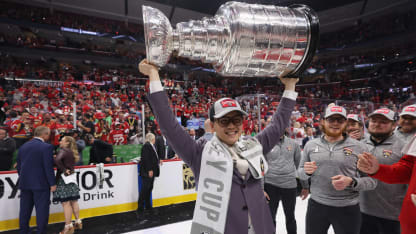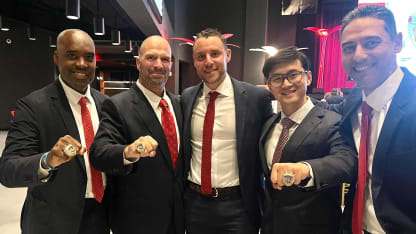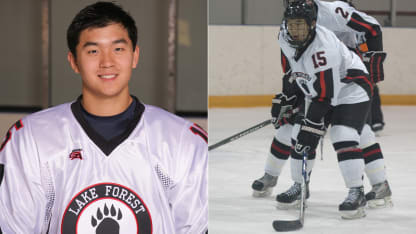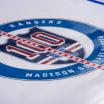Still, Bark thrived and moved on to Lake Forest College, an NCAA Division III school in Lake Forest, Illinois, where he had 67 points (17 goals, 50 assists) in 75 games as a center from 2009-13. He was named team captain his senior season, but injuries limited him to one game.
“I was the shortest guy on the team (5-foot-7, 170 pounds),” he said. “Maybe you call it passionate and fiery, and I call it kind of stupid, but I thought I was 6-foot-2, so that led to a lot of unnecessary head trauma.”
His injury history led to a life-changing opportunity. Zito was looking for some help in 2011 when he was president and co-founder of Acme World Sports, a Chicago-based agency that represented several of the NHL’s top players. Justin Taylor, a forward for Lake Forest in 2009-10 and the son of Tim Taylor, Zito’s hockey coach at Yale University from 1984-87, recommended Bark.
“He said, ‘My buddy ‘Barks,’ he got hurt, he’s not traveling this weekend, he’ll do it for you, he’s a great guy,’” Zito said. “'Oh, and maybe he wants an internship or something.’ Okay, he’s an intern. He gets in there and we’re, like 'Oh, my God.’”
Bark became an associate for Acme from 2012-15, supporting agents in operations, regulatory compliance, contracts, global market dynamics and hockey analysis.
“That was the most fun stuff,” he said. “People use the term ‘family’ a lot in business settings. But working with that agency, seeing the bond these guys formed with players, with people, as you help them achieve their dreams, I mean, that’s as strong as it gets, bordering maybe on something you could call familial.”
Zito was so impressed with Bark's work that he invited him to be a part-time analyst for the Columbus Blue Jackets while attending the Moritz School of Law at Ohio State University, when Zito was an assistant general manager under GM Jarmo Kelalainen with Columbus.
The part-time gig turned into full-time employment and five seasons with the Blue Jackets, with whom Bark rose to manager of scouting operations and player evaluation.
“It was an incredible experience because the Blue Jackets at the time, we were a draft and develop team,” he said. “There was a heavy focus on the amateur draft and having the right pieces to build that team. It was a multifaceted experience, and it shaped a lot of how I view player evaluation and how scouting operations should run.”









